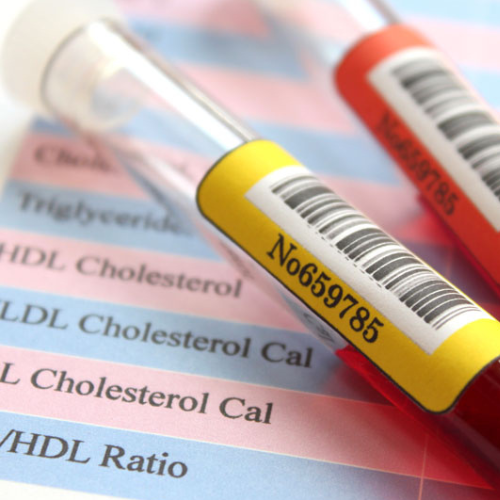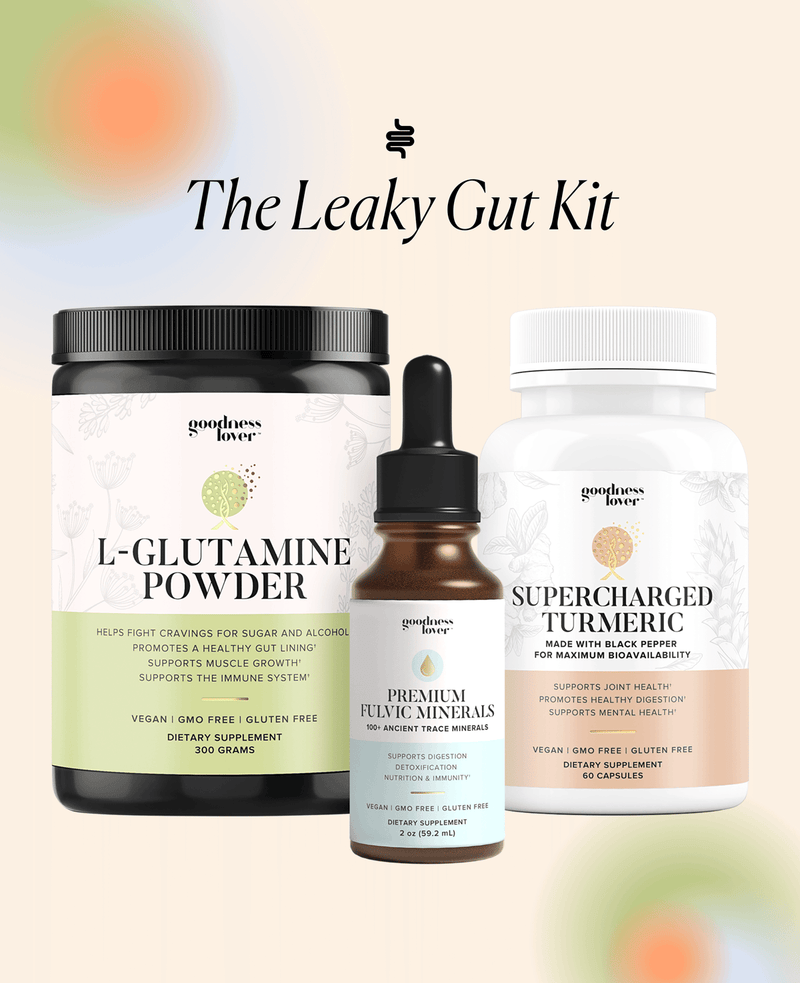Cholesterol is almost more of a hot topic than pineapple on pizza, but it seems that the more information that you get, the more confused you become. Your doctor may have told you one thing, the news media another, and you may have read a study that seemed to say something entirely different!
It’s no wonder that many people don’t know what to think about their cholesterol numbers or how they’re influenced by the foods they consume!
So, what should we make of all of this?
What do your cholesterol numbers mean? How does cholesterol impact your health? And should you be changing the way you eat to make sure your cholesterol numbers are in the recommended ranges?
Now before we dive too deep into this rabbit hole, let’s begin by defining what cholesterol is.
What is Cholesterol?
Cholesterol is a waxy, lipid molecule that is present in nearly every cell of your body. It is an essential building block for creating healthy cells, and about 25% of your body's cholesterol is found in your brain. Your body makes all the cholesterol it needs (about 75% is made in the liver), but it also absorbs a relatively small amount of cholesterol from certain foods, such as eggs, meat, and full-fat dairy products. Cholesterol absorption does differ between individuals, ranging from 25-75%!
Cholesterol is essential for your health as it serves many important functions in your body. For example, it is necessary for the production of estrogen and progesterone as well as for the stress hormone, cortisol. It is also involved in the production of vitamin D and supports healthy digestion by assisting bile production.
Types of Cholesterol
“Cholesterol” is an umbrella term that is often used to describe the fats in your blood.
As fat and cholesterol don’t mix well with water and your body is 60% made up of water, these two molecules need to be packaged inside biochemical compounds called lipoproteins to travel through the bloodstream.
These lipoproteins (formed from lipid and protein) act as emulsifiers, allowing fats and cholesterol to circulate. When these particles come into contact with the cells’ receptors, the fats and cholesterol are directed into specific tissues to perform certain functions.
There are five major types of lipoproteins but two that we typically hear about and will mention to keep things simple:
- Low-density lipoprotein (LDL cholesterol): These are often referred to as “bad” cholesterol because high levels in the bloodstream have been associated with a higher risk for atherosclerosis, which is the accumulation of plaque in your arteries that can lead to heart disease. LDL cholesterol carries cholesterol, triglycerides, and other fats throughout your body. LDL cholesterol is often likened to a dump truck that dumps cholesterol around your body in the artery walls.
-
High-density lipoprotein (HDL cholesterol): These collect the fats distributed by LDL from your tissues and cells and return them to the liver to be processed and excreted. HDL is often called “good” cholesterol as higher levels of HDL have been associated with a lower incidence of atherosclerosis. While all other lipoproteins promote the build-up of plaque in your arteries, HDL has the opposite effect. HDL is often likened to a garbage truck that picks up the unprocessed cholesterol and takes them to the liver to be disposed of.

Some other markers that are found in your blood test results include:
- Triglycerides: this is an additional marker to pay attention to. When you eat, your body converts any calories it doesn't need to use right away into triglycerides. The triglycerides are stored in your fat cells. Later, hormones release triglycerides for energy between meals. If you regularly eat more calories than you burn, particularly from high-carbohydrate foods, you may have high triglycerides (hypertriglyceridemia). For the most part, the lower your triglyceride levels, the better.
- Total cholesterol: this refers to the combination of all types of cholesterol in your bloodstream. While it can still be a useful marker, it doesn’t necessarily give a super helpful picture of your “good” or “bad” cholesterol numbers or what this may mean for your health.
Cholesterol and Your Health
When you have too much bad (LDL) cholesterol in your blood, it can build up on the walls of your arteries that feed your heart muscle, leading to what is known as atherosclerosis. Atherosclerosis is the hardening of the arteries by pockets of cholesterol-rich fatty material that amasses beneath the linings of the blood vessels.
Over time, it begins to impinge on the space inside the arteries, restricting blood flow and causing chest pain and pressure when people try to exert themselves. If the plaque ruptures, a blood clot may form within the artery and may cause a heart attack, damaging or even killing part of the heart.
Everyone should try to keep bad (LDL) cholesterol as low as possible. If your doctor or nurse tells you that you have high cholesterol, it means that your bad cholesterol is too high, and having high LDL cholesterol levels is linked to a higher risk for heart disease.
Not only is high cholesterol associated with heart disease, it has also been linked with increased risk of cancers of the stomach, colon, rectum, pancreas, lung, breast, kidney, bladder and bone marrow. This is because cancer feeds on cholesterol. For example, the largest study to date on breast cancer risk and cholesterol found a 17% increased risk in women who had cholesterol over 240, compared to women whose cholesterol was under 160.
High LDL levels may also lead to an increased risk for gallstones, nerve issues (especially if you’ve diabetes), and an increased risk for dementia.
Causes of High LDL Cholesterol
1. Saturated and trans fats
When it comes to diet, it’s a bit more complicated than just the conclusion that foods high in cholesterol increase your blood cholesterol. Now it is a well-known fact that certain foods, such as red meat and eggs, can increase your risk of cardiovascular disease. These foods are high in cholesterol, so it was naturally assumed that dietary cholesterol contributed to high blood cholesterol levels and therefore, heart disease.
However, we know that foods with a lot of cholesterol usually also contain a lot of saturated and trans fats. Studies are showing that saturated fats and trans fats, more than dietary cholesterol, are the greater culprits of elevated blood cholesterol levels. Food containing saturated and trans fats includes dairy products, meat, poultry, seafood and fish, eggs, coconut, palm oil, and many baked goods, fried foods, and fast-food items.
There is also evidence that shows that the more dietary cholesterol you consume in your diet, the less your body synthesises it. For example, studies have shown that certain populations such as the Masai of East Africa, have low serum cholesterol levels and a low prevalence of atherosclerosis despite a high-fat, high-cholesterol diet centred on cattle milk, cow blood, and meat (providing 66% of calories from fat and 600-2000 mg of cholesterol per day)! Even though they have high dietary cholesterol absorption, they have low serum cholesterol as their bodies largely suppress endogenous cholesterol synthesis.
Of course, remember that most foods high in dietary cholesterol also contain high saturated fat and trans fats, and so this is not a justification to go drink more milk and cow blood (in other words, increase your consumption of high cholesterol foods)! Also, there is some evidence that people with type 2 diabetes or metabolic syndrome, cholesterol-based vascular disease, or a history of heart attack, stroke, or peripheral artery disease, should lower their dietary cholesterol consumption.
2. Genetics
Another underlying driver of elevated blood cholesterol are your genes. If your parents and grandparents have or had high cholesterol, there is a greater chance that you’ll come back from the doctors with bloodwork that also indicates high cholesterol. Maybe genetics are partly the reason the Masai have low serum cholesterol despite a high dietary intake.
It’s been estimated that 15-20% of the population are what we call “hyper-responders” to dietary cholesterol. Hyper-responders to dietary cholesterol experience an almost three-fold greater response to dietary cholesterol compared with the rest of the population. This doesn’t mean that if you have a genetic predisposition to elevated LDL cholesterol levels, there’s nothing you can do about it. It simply means that you should be aware of it and that you would do well to pay close attention to your diet and exercise (which everyone can benefit from anyway!)
Besides a diet high in saturated and trans fats and genetics, the other risk factors that can lead to higher blood LDL levels include:
- Advancing age
- Being male
- Being a female post-menopause
- Obesity or being overweight
- A sedentary lifestyle
- Stress
- Smoking
- Liver or kidney disease
- Polycystic ovarian syndrome (PCOS)
- Pregnancy and other conditions that increase levels of female hormones
- Underactive thyroid gland
- Certain medications (such as birth control pills, hormone replacement therapy, steroids, and blood pressure medications such as beta-blockers and diuretics)
So What’s The Conclusion On Cholesterol?
There’s a growing consensus among nutrition scientists that dietary cholesterol has little effect on the amount of cholesterol in your bloodstream. It more boils down to the amount of saturated and trans fat in your diet as well as genetics and other environmental factors such as physical activity, not smoking, and stress management.
So while the focus shouldn’t necessarily be on reducing foods high in cholesterol, you will do well to reduce your intake of foods high in saturated and trans fats (and they often go hand in hand anyway!) and focus on heart-healthy, plant-based foods. After all, even if cholesterol guidelines change, the recommendation to eat more plant foods won’t.
Recipe Spotlight: Veggie Broth
Recently, broths have taken the spotlight.
But did you know there’s a way to get all the nutrients and energy you need from a broth without consuming animal products?
Our gut-healing veggie broth contains super basic ingredients that you likely have on hand year-round. We also made sure that each ingredient doesn’t contain any of the bad kinds of cholesterol. You can consume this broth on its own or add it to your favorite meals. Enjoy!
















What Do You Think? Comment Below: